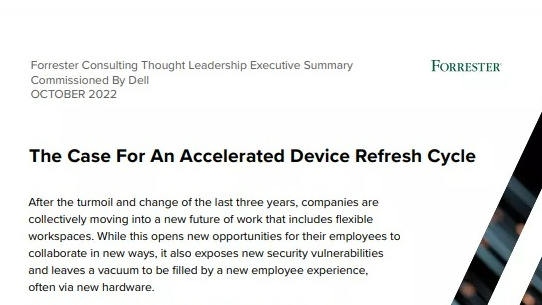Basecamp loses a third of its staff over internal freedom of speech row
Many senior staffers quit after founders ban political discussions on the work platform


Collaboration software company Basecamp suffered a serious setback late last week after a third of its staff reportedly left following disputes over the company's attitude toward internal political debates.
The company's heads of design, marketing, and customer support have left, along with their lead iOS developer.
The controversy began after the collaboration software company's co-founder and CEO Jason Fried wrote a blog post last Monday titled Changes at Basecamp describing several new company rules. Alongside “no more lingering or dwelling on past decisions,” the company also announced the end of “paternalistic benefits” and canceled fitness benefits and wellness allowances. The company replaced these benefits with a cash payment for this year.
Fried also announced “no more societal and political discussions on our company Basecamp account.”
"Sensitivities are at 11, and every discussion remotely related to politics, advocacy, or society at large quickly spins away from pleasant. You shouldn't have to wonder if staying out of it means you're complicit, or wading into it means you're a target," he said.
According to reports, the decision stemmed mainly from an internal discussion over a long-kept list of customer names that some employees had found amusing. Employees had complained about the racist connotations of listing some of the names. Internal management condemned and removed the list but asked employees to move on from the discussion. This provoked further debate by employees, which management took issue with.
In his blog post, Fried also announced the company shut down all of its committees. The company had operated a diversity, equity, and inclusion (DEI) council that had attracted numerous employees. Its DEI work would now be the responsibility of one individual, it said.
Get the ITPro daily newsletter
Sign up today and you will receive a free copy of our Future Focus 2025 report - the leading guidance on AI, cybersecurity and other IT challenges as per 700+ senior executives
In a separate blog post, co-founder and CTO David Heinemeier Hansson explained the decision: "If you're in doubt as to whether your choice of forum or topic for a discussion is appropriate, please ask before posting," he said. "But if you make a mistake, it's not the end of the world. Someone will gently remind you of the etiquette, and we'll move on. This isn't some zero-tolerance, max-consequences new policy."
Two days later, Hansson revealed the company offered a severance package worth up to six months' salary for those who’ve been with the company for over three years, and three months for those who have been with the company for less than that. "For those who cannot see a future at Basecamp under this new direction, we'll help them in every which way we can to land somewhere else," he said.
On Friday, lead iOS developer Zach Waugh tweeted about his departure.
"I resigned today from my role as Head of Marketing at Basecamp due to recent changes and new policies," tweeted Andy Didorosi the same day.
Other employees who posted that they were leaving on Twitter included head of design Jonas Downey, head of customer support Kristin Aardsma, Conor Muirhead, who also led the iOS team, and senior administrative assistant Navid Afshar.
Sam Stephenson, who helped develop several open source projects at the company, tweeted his own resignation. "Effective immediately, I will make no further updates to, nor releases of, any of the aforementioned open-source software I worked on at Basecamp. This is entirely my decision. Thank you for understanding."
Several former staffers received job leads on their Twitter feeds the same day.
At least one customer canceled their account, while many took to Twitter to voice their disapproval of the company's actions.
Danny Bradbury has been a print journalist specialising in technology since 1989 and a freelance writer since 1994. He has written for national publications on both sides of the Atlantic and has won awards for his investigative cybersecurity journalism work and his arts and culture writing.
Danny writes about many different technology issues for audiences ranging from consumers through to software developers and CIOs. He also ghostwrites articles for many C-suite business executives in the technology sector and has worked as a presenter for multiple webinars and podcasts.
-
 Westcon-Comstor and Vectra AI launch brace of new channel initiatives
Westcon-Comstor and Vectra AI launch brace of new channel initiativesNews Westcon-Comstor and Vectra AI have announced the launch of two new channel growth initiatives focused on the managed security service provider (MSSP) space and AWS Marketplace.
By Daniel Todd Published
-
 Third time lucky? Microsoft finally begins roll-out of controversial Recall feature
Third time lucky? Microsoft finally begins roll-out of controversial Recall featureNews The Windows Recall feature has been plagued by setbacks and backlash from security professionals
By Emma Woollacott Published
-
 'Digital hide-and-seek': Workers are wasting hundreds of hours a year sourcing the information they need to carry out their role
'Digital hide-and-seek': Workers are wasting hundreds of hours a year sourcing the information they need to carry out their roleNews Knowledge workers globally are wasting a quarter of their working week tracking down information, new research from Atlassian has revealed.
By George Fitzmaurice Published
-
 Untethered: How CIOs and CISOs are paving the way for the new hybrid workforce
Untethered: How CIOs and CISOs are paving the way for the new hybrid workforceWhitepaper Effective techniques to transition from exposed legacy infrastructure to an effective zero trust strategy
By ITPro Published
-
 Unlocking the power of your digital services
Unlocking the power of your digital servicesSponsored Businesses have invested significant cash into technology since COVID-19, but are they really getting their money's worth?
By ITPro Published
-
 Delivering fast and secure digital experiences for the modern hybrid workforce
Delivering fast and secure digital experiences for the modern hybrid workforceWhitepaper A new approach to digital experience monitoring that can monitor the health of all systems
By ITPro Published
-
 Collaboration is the glue that holds your business together
Collaboration is the glue that holds your business togetherSPONSORED A combination of productivity tools and cloud telephony can enable the best from your workforce
By ITPro Published
-
 The future of work and the forgotten workforce
The future of work and the forgotten workforcewhitepaper How to deploy a mobile-first strategy so no one gets left behind
By ITPro Published
-
 The case for an accelerated device refresh cycle
The case for an accelerated device refresh cycleWhitepaper Achieving a more cost-effective device lifecycle overall
By ITPro Published
-
 Employees are choosing how they work
Employees are choosing how they workWhitepaper And with the right secure digital strategy, this could be a great thing for your business: today and far into the future
By ITPro Published